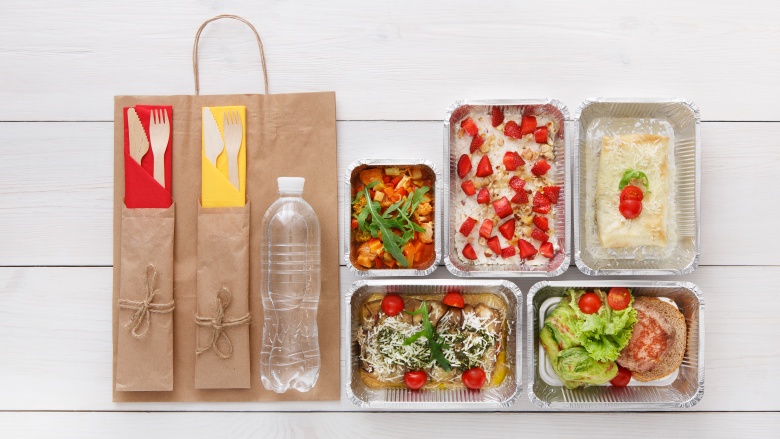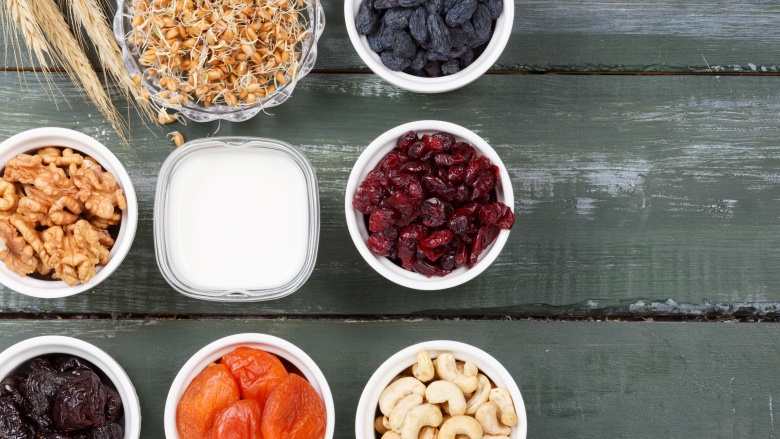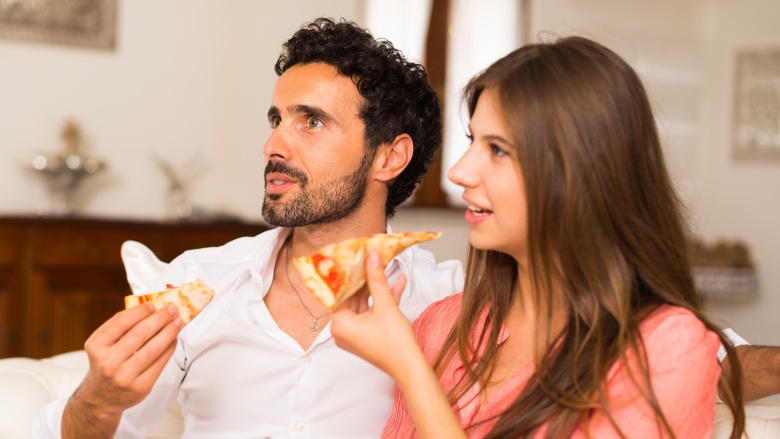What Time Of Day Should You Really Be Eating?
We may receive a commission on purchases made from links.
When to comes to diet, nutrition, and its related health implications, everyone has an opinion on what you should and should not eat. Wine is great for you — especially your mind, bones, blood sugar levels, and weight — except when it's not so good to your heart. Salmon will most certainly kill you, but it will also improve your brain function and heart health, presumably before you kick the bucket.
So yeah, figuring out what to eat is nearly impossible. But figuring out when to eat — that might be one of the best ways to break your cycle of bad eating, shed those extra pounds and get on the right track to improve your overall health.
Why does timing matter?
Our bodies are amazing at keeping time. In fact, our body clocks, often referred to as the "circadian clock," follows circadian rhythm. This rhythm rises and dips throughout the day to reflect our daily pattern. That's why you might wake up at 6 a.m., even on Saturday, since that's your normal waking time through the week. We think of the circadian clock in terms of resting hours and awake hours, but this clock also regulates when we eat — or at least when we should.
When we throw off our body clock by doing shift work, binge watching House of Cards on Netflix or jet setting around the globe, we end up paying for it with weight gain and associated medical conditions like type 2 diabetes.
But the wonderful thing about our bodies is, with a little hard work and dedication, our clocks can be rewound in no time.
Three or six
Before we can go into when you should eat, we should first layout, how often you should eat. Currently, there is a trend in weight loss to recommend eating six small meals per day — spaced out every 2.5 to three hours, instead of the three meals a day we grew up eating. The science is iffy on which is best.
A 2010 study from the University of Ottawa found increased frequency of meals did not lead to greater weight loss. There isn't clear evidence to prove that eating three meals a day is better either. It's really what works best for you.
Breakfast
We all know that breakfast is an extremely important meal.
It's important when you're talking about weight loss and exercise, too — especially if we're talking about when to eat it. A 2010 study published in The Journal of Physiology looked at the impact of a high calorie, high fat diet on three groups —group A (people who ate breakfast before working out), group B (people who ate breakfast after working out), and group C (people who ate breakfast without working out). They found after six weeks people who didn't workout at all and people who ate breakfast before working out gained weight, while those that ate breakfast after working out had no weight gain.
There is no perfect time to eat breakfast, but the US Department of Agriculture (USDA) recommends breakfast should fall between 5 a.m. and 10 a.m. on weekdays, until 11 a.m. on weekends.
Morning or afternoon snack
If you're on a six meal eating cycle, you get to have a mid-morning snack, usually two to three hours after breakfast. There is a lot of debate as to the benefits of the mid-morning snack. According to a 2011 study in the Journal of the Academy of Nutrition and Dietetics, mid-morning snacking impeded weight loss for postmenopausal, overweight or obese women. However, that study, and several others found that mid-morning snacking is an opportunity to increase intake of fruit, vegetables, and fiber-rich foods.
An article published in Pediatrics found that children who ate snack foods that are more filling, like vegetables and cheese, consumed up to 72 percent fewer calories before being satisfied than those who ate snacks like potato chips.
Lunch
When it comes to weight loss or weight maintenance, early is best, according to researchers in Spain. In a study published in the International Journal of Obesity, researchers analyzed the role food timing played in the effectiveness of weight-loss of 420 individuals. A little over half of the participants ate an early lunch, while the rest ate a late lunch after 3 p.m. They found late lunch eaters lost less weight and had a slower weight-loss rate than early-eaters.
Dinner
Dinner time is reliant on your bed time. So if you usually go to bed at 9 p.m., it is recommended to eat no later than 6 p.m., since you should always give your food at least 3 hours to digest. This is for two reasons — you don't want to go to bed on a full stomach because it will likely wake you up in the middle of the night. But it also has a lot to do with acid reflux. A 2005 study found that people who ate a late dinner were more likely to suffer from acid reflux. This is a condition in which the stomach acids bubble up to the food pipes. It can be extremely uncomfortable and can keep you up all night.
It's also good to stop eating a few hours before bedtime because we tend to make bad food decisions the later it is. You didn't need to eat that entire bag of Funyuns, but you did because it's 11 p.m. and Funyuns are best eaten at 11 p.m.
Don't eat mindlessly
When it comes to eating, the best thing to do is not mindlessly eat. In the book Mindless Eating: Why We Eat More Than We Think, author Brian Wansink, PhD, described mindless eating as distracted eating. He says it's one of the ways we overeat. To combat mindless eating any time of the day, make sure you engage in distraction-free eating. That means turning off the TV, not eating at your desk at work while responding to emails, and not driving on the highway while eating a burrito bowl.
Basically, think about what you're eating and when, instead of just reaching for it. A little bit of thought might make a big difference.







